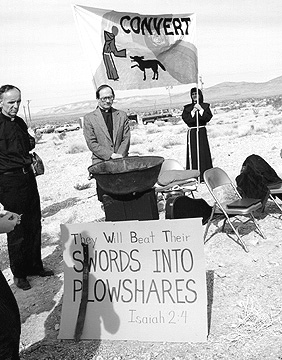
by Roy Eidelson
It makes sense that Donald Trump is worried about an approaching caravan. But it’s not the one you’re probably thinking of: the few thousand desperate Central Americans who’ve banded together and are slowly making their way through Mexico toward the U.S. border. These migrants have broken no laws in undertaking their difficult and dangerous journey, and seeking asylum here is their legal right.
No, the caravan that’s actually giving Trump and the GOP panicky night fevers is comprised of tens of millions of U.S. citizens. Committed to countering the horrors of the past two years—and the past week—they’re heading to polling places across the country with a single goal in mind: to vote some of the president’s fondest enablers out of office.
Comparing the two, the voter caravan is the only potentially disruptive force, the one powerful enough to upend a political agenda that primarily nourishes the rich and the racist. Trump’s focus on the migrant caravan is simply pretense, a craven way to galvanize the GOP base—especially the white nationalists within it.
Central to this strategy is the use of manipulative and deceitful psychological appeals that have been used throughout history by self-serving demagogues. Here are four examples:
“It’s a Dangerous World”: Trump falsely portrays the migrant caravan as a dire threat to the United States, a hostile invasion that requires sending thousands of military troops to the border to keep us safe.
“No Injustice Here”: The White House falsely claims that its inhumane immigration policies—prolonged detention, obstruction of asylum claims, family separation—are neither unwarranted nor unfair.
“They’re Different from Us”: GOP leaders falsely argue that these migrants don’t share our values, our aspirations, or even our humanity, and should therefore be treated with suspicion rather than compassion.
“Pursuing a Higher Purpose”: Trump falsely insists that even long-cherished principles and basic human decency are legitimately sacrificed at the border in order to advance his master plan for restoring America’s greatness.
These claims from the president and his accomplices are all as empty as a conman’s promises. The migrants aren’t plotting to harm us; they’re escaping horrific violence and trying to protect their children. Our government’s hostile and brutal response to their plight isn’t reasonable—it’s unjustifiable. These men, women, and children are no different from us—in their struggles against adversity or their desire to live with dignity. And certainly, any country’s greatness is diminished by its refusal to help those in need.
But Trump and other GOP leaders believe that stoking fear, anger, suspicion, and contempt toward the migrant caravan is the best way to counter and undermine the voter caravan now massing against them. They recognize that a narrow base, agitated by lies and distortions, is their only hope against a broad electorate that sees the country lurching to new depths every day.
Don’t let their manipulative ploys succeed yet again. On Election Day, join the voter caravan and be part of the national course correction we urgently need.
This work is licensed under a Creative Commons Attribution-Share Alike 3.0 License.



